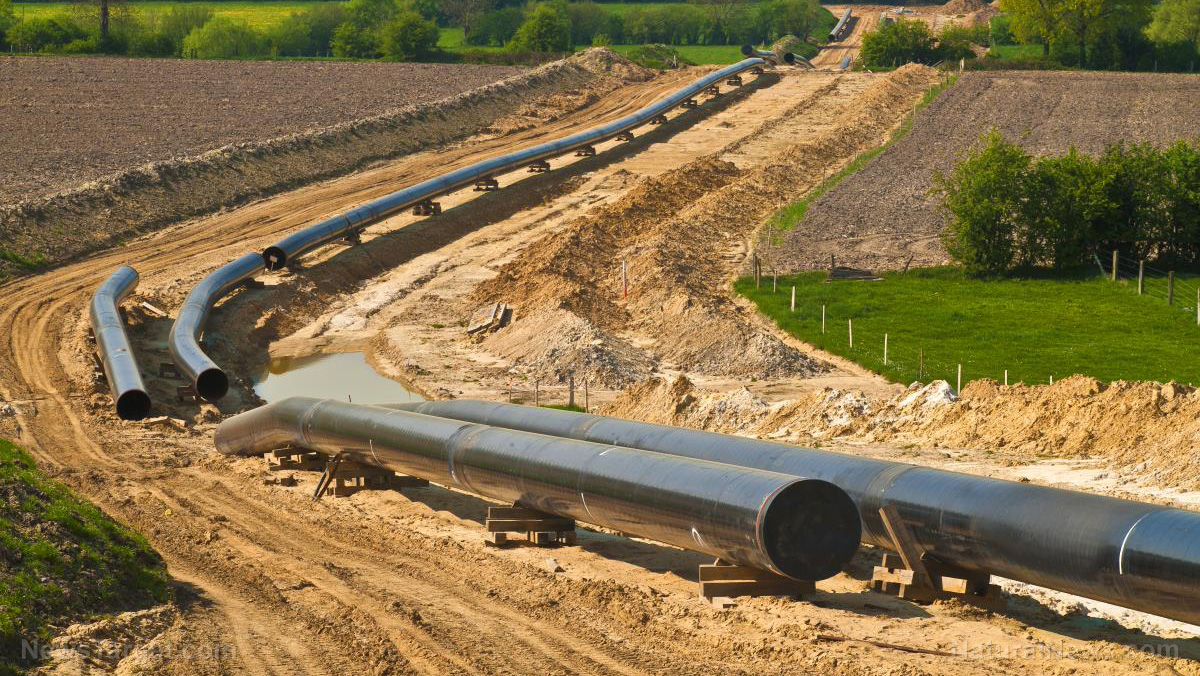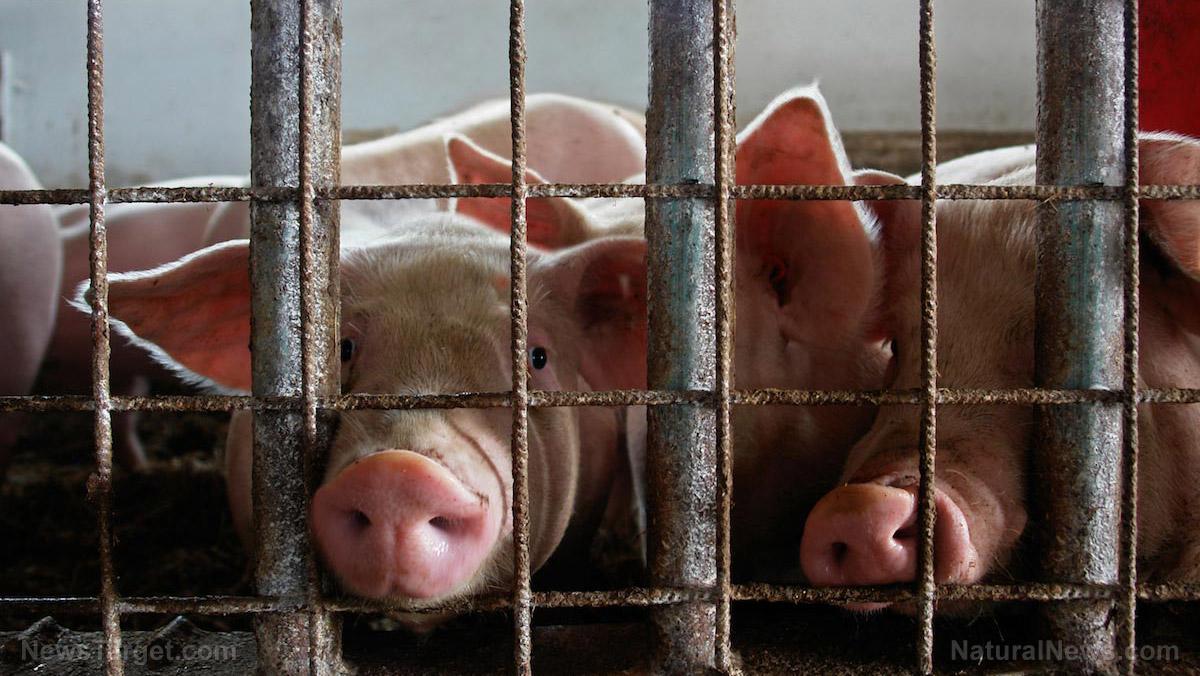 Parler
Parler Gab
Gab
- Private companies backed by federal subsidies are using eminent domain to seize farmland for CO2 pipeline networks, sparking fierce opposition from farmers, property rights advocates and environmentalists. Summit Carbon Solutions, linked to a political figure, leads the 2,500-mile project across five Midwestern states.
- CO2 pipelines pose significant hazards, as seen in a 2020 Mississippi rupture that hospitalized 45 people. Critics warn of soil damage (reducing crop yields by 15–25%) and lax regulations, while the Trump administration shelved safety rules in 2025.
- Proponents claim carbon capture fights climate change, but critics argue it's a fossil fuel subsidy. Most global projects fail financially, and some pipelines serve "enhanced oil recovery," undermining environmental goals.
- Farmers like Jared Bossly resist forced land seizures, calling it tyranny. South Dakota banned eminent domain for CO2 pipelines, but Summit is challenging the law in court. Grassroots protests and legal battles are mounting.
- The conflict reflects a struggle over corporate power, property rights and rural livelihoods. While some states push back, Summit's expansion into new regions signals a prolonged fight, with farmers warning of irreversible land loss if the trend continues.
The pipeline push: A corporate land grab?
Summit and other firms have sent letters to landowners, offering payments for easements while threatening eminent domain if they refuse. Farmers report that pipeline routes would cut through prime cropland – sometimes within 60 feet of homes – with buffer zones rendering large swaths of property unusable. "Our goal is to reach voluntary agreements with all landowners along the project route," Summit's letters state. But critics see this as coercion. Activist and pipeline opponent Marc Morano said: "They're using the government's power to take land from people who don't want to sell." In Iowa, county supervisors initially claimed helplessness, with one letter stating, "There’s not much we can do. It looks like it's just going to happen." But grassroots pressure, including rallies and legal challenges, has forced some local governments to pass protective ordinances.Safety risks: A history of failures and near-disasters
CO2 pipelines are not new, but their rapid expansion – driven by federal tax credits — has outpaced safety regulations. A 2020 rupture in Satartia, Mississippi released a toxic CO2 plume that hospitalized 45 people, highlighting the dangers of transporting liquefied CO2 under extreme pressure. “CO2 is an asphyxiant that can travel miles in lethal concentrations,” said Bill Caram of the Pipeline Safety Trust. Despite this, the Trump administration shelved proposed safety rules in early 2025, leaving communities vulnerable. Farmers also fear construction damage. A 2021 Iowa State University study found that pipeline projects reduced crop yields by 15–25% due to soil compaction and contamination.The climate debate: Does carbon capture work?
Proponents argue carbon capture is essential to combat climate change, but critics call it a greenwashed subsidy for fossil fuels. Of 47 major carbon capture projects worldwide, most have failed financially despite heavy government backing. "CO2 isn't a pollutant – it's plant food," said Tom DeWeese, an anti-pipeline activist. "We're at 400 parts per million in the atmosphere, far below the 1,600 ppm needed for optimal plant growth. Burying it is scientifically illiterate." The Biden administration's Inflation Reduction Act boosted tax credits to $85 per ton of sequestered CO2, incentivizing a pipeline "gold rush." Yet skeptics note that many projects serve "enhanced oil recovery" – pumping CO2 into wells to extract more oil, negating climate benefits.Eminent domain abuse: A threat to property rights
The most explosive issue is the use of eminent domain to seize land for private gain. In South Dakota, farmer Jared Bossly became a symbol of resistance after Summit accused him of "threatening" surveyors – a claim he denies – and obtained a restraining order barring him from confronting trespassers on his own property. "This is tyranny," Bossly said. "They destroyed my crops and think they can bully us into submission." His case galvanized a farmer-led protest at the state capitol, prompting South Dakota to ban eminent domain for CO2 pipelines. Summit is now challenging the law in court. The CO2 pipeline battle is more than an environmental dispute – it's a clash over corporate power, property rights and the integrity of rural communities. With Navigator CO2 Ventures abandoning its pipeline plans and states like South Dakota pushing back, the tide may be turning. But Summit's legal challenges and expansion into Ohio, West Virginia and Pennsylvania signal a prolonged fight. For farmers like Bossly, the stakes couldn't be higher: "If we don't stop this now, they’ll keep taking land until there's nothing left to fight for." As the debate rages, one question lingers: Will America's heartland surrender to corporate interests, or will grassroots defiance preserve the rights of those who feed the nation? Sources for this article include: ClimateDepot.com GoodMenProject.org NoIllinoisCO2pipelines.orgDOJ targets controversial “Proximal Origin” study in push for scientific transparency
By Willow Tohi // Share
Gaddafi’s prophecy unfolds: How NATO’s destruction of Libya fueled Europe’s migration crisis
By Lance D Johnson // Share
Sitting too much? New study reveals even exercise can’t fully offset brain shrinkage risk
By Willow Tohi // Share
Israel’s U.S.-backed Gaza aid plan sparks global backlash
By Belle Carter // Share
LAB-MUTATED PORK: The CRISPR pigs are gene-edited and heading to your dinner plate
By S.D. Wells // Share
Governments continue to obscure COVID-19 vaccine data amid rising concerns over excess deaths
By patricklewis // Share
Tech giant Microsoft backs EXTINCTION with its support of carbon capture programs
By ramontomeydw // Share
Germany to resume arms exports to Israel despite repeated ceasefire violations
By isabelle // Share










